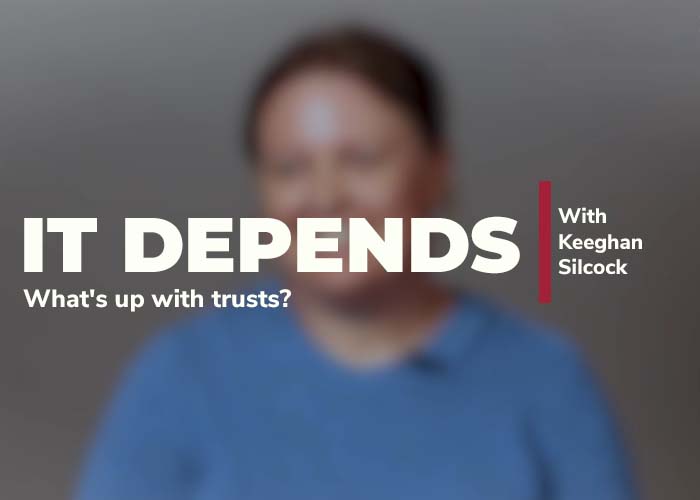Cooper Grace Ward recently acted for the trustee of a self-managed superannuation fund in an application to the Supreme Court of New South Wales for judicial advice about whether the trustee was justified in paying a death benefit in circumstances where the continued appointment of the trustee raised compliance issues for the Fund.
In the decision of In the matter of Gainer Associates Pty Ltd [2024] NSWSC 1138, the trustee was successful in obtaining advice that it was justified in paying the death benefit, despite the non-compliance and allegations by the deceased member’s spouse that the trustee had failed to exercise its discretion properly. The trustee also obtained advice that it was justified in defending separate proceedings commenced by the spouse seeking the removal of the trustee.
The Court’s decision turned on the steps taken by the trustee to reduce the risk of adverse consequences for the Fund, in circumstances where the non-compliance had arisen through circumstances not of the trustee’s own making. The Court noted that the trustee had acted in good faith and in the interests of the Fund.
The decision provides useful guidance and commentary on the following issues for self-managed superannuation funds and trustees generally:
- circumstances in which a trustee should seek judicial advice, and circumstances where the Court may decline to give judicial advice
- remuneration of an independent director and the application of section 17B of Superannuation Industry (Supervision) Act 1993 (Cth) (SIS Act)
- the process and relevant considerations for a trustee when exercising discretion to pay a superannuation death benefit.
Background
The sole member of the Gainer Associates Superannuation Fund died in 2021, leaving a member balance of around $7 million. At the date of her death, the member was also the sole director and shareholder of the corporate trustee of the Fund. Shortly before the member died, she signed a BDBN and a new Will. The lawyer who prepared the BDBN and Will was named the member’s executor, but died shortly after the member.
Two separate legal disputes arose regarding the administration of the estate: the member’s brother claiming the Will was invalid, and the member’s de facto spouse commencing a family provision application.
In March 2022, the NSW Supreme Court made orders appointing NSW Trustee and Guardian (NSWTG) interim administrator of the estate. NSWTG, as sole shareholder of the trustee company, appointed a qualified liquidator as the trustee’s sole director.
Two issues arose for the trustee:
1. how to pay the death benefit
2. whether the appointment of the liquidator as director complied with the member-trustee rule in the superannuation legislation.
Compliance issues
There were two main compliance issues that arose for the Fund:
1. First, section 17A of the SIS Act requires every member (or the legal personal representative of a deceased member) to be a trustee or director of the corporate trustee of the Fund.
2. Second, the trustee or its directors cannot receive remuneration for duties or services performed in relation to the fund. Section 17B of the SIS Act provides a notable exception to this rule – if a director possesses professional qualifications and is performing work for the fund in their professional capacity.
If a fund fails to comply with these conditions, the Commissioner for Taxation can issue it with a notice of non‑compliance. Accordingly, the Fund could have lost its concessional tax treatment, and received penalties, including paying tax at the highest marginal rate on both the income and the value of the assets of the Fund.
Because the liquidator was not the executor or administrator of the member’s estate, the Fund had ceased to comply with the conditions in section 17A.
Depending on the characterisation of the work the liquidator carried out for the Fund, paying the liquidator’s fees may have also been a breach of those conditions.
The trustee of the Fund and NSWTG jointly wrote to the Commissioner of Taxation, requesting the Commissioner exercise its discretion not to issue a notice of non-compliance to the Fund.
The Commissioner responded, advising that it would not pursue the Fund for any breaches of section 17A and agreed not to issue a notice of non-compliance.
Dispute over death benefit payment
At the same time, in order to exercise its discretion about payment of the death benefit, the trustee:
- obtained legal independent advice about its role
- wrote to the eligible recipients of the death benefits calling for applications to be considered for payment
- sought further information in relation to the applications that were submitted
- notified the applicants for the death benefit of the timeframe in which it proposed to make its decision.
Despite receiving a timeframe in which the decision would be made, the deceased’s de facto spouse commenced court proceedings seeking the trustee’s removal (removal proceedings). In addition, the spouse sought:
- orders prohibiting the trustee’s remuneration or indemnification for costs from the assets of the Fund
- orders compelling the due and proper administration of the Fund and distribution of the death benefit
- damages for breach of trust.
The removal proceedings were subsequently adjourned several times at the request of the spouse.
The trustee wrote to the applicants as foreshadowed, notifying them that it proposed to pay two‑thirds of the death benefit to NSWTG and one‑third to the spouse. The spouse objected to that proposal.
Judicial advice proceedings
Following receipt of the spouse’s objection, the trustee filed separate proceedings seeking the Court’s advice about whether it was justified in:
- paying the death benefit in accordance with its proposed decision
- defending the removal proceedings
- paying the director’s fees and other costs from the assets of the Fund
- relying on the usual indemnities available to trustees.
The decision
The Court noted that the fact that the trustee was in breach of the rules was a reason to seek judicial advice. Further, it would not have been appropriate to proceed in the absence of such advice or not to proceed at all. The Court concluded it was in the best interests of the trust estate for the Court to provide advice so that trust property could be managed and administered in a timely manner.
The Court noted that the trustee could not simply leave its role without a replacement and, given NSWTG was unwilling to accept the role of trustee of the Fund, there was no replacement available that would comply with the legislation and the rules of the Fund.
The Court went on to say that the trustee had done its best to resolve the compliance issues (noting the problem was not of its making) and, as a result, the breach was unlikely to expose the beneficiaries or the Fund to loss.
In relation to the specific advice the trustee sought, the Court gave advice as follows:
- The trustee was justified in paying the death benefit as it had proposed. In giving that advice, the Court rejected the allegations that the trustee lacked independence and had not given real and genuine consideration to the issues. Notably, her Honour emphasised that the trustee was not legally bound by statute or common law to pay the death benefit to a dependant in priority to the estate, as suggested by the spouse.
- The trustee was justified in defending the removal proceedings. Her Honour noted that, in those proceedings, the spouse was doing more than seeking the trustee’s removal (in which case, the spouse argued, the Fund should not pay the costs of the trustee seeking to remain in office). The spouse was also seeking to impugn the conduct of the trustee. Her Honour expressed concern that the spouse had not progressed the removal proceedings and held that the trustee should not be left in an uncertain position as to what it should do if the spouse chose to progress the proceedings.
- The trustee would be justified in paying fees charged by the liquidator for carrying out his role as director from the assets of the Fund. Her Honour indicated that, on review of the liquidator’s timesheets, the bulk of his work would fall within the exception in section 17B(2) but, given the indemnity provided by the Commissioner, concluded there was no reason to actually undertake an assessment of what time did or did not fall within the exception.
In giving advice that the trustee would also be justified in paying the portion of the fees that fall outside the exception, her Honour noted that it was in the interests of the Fund that the director complete his duties, the director is entitled to seek payment for that work, and the trustee has taken reasonable steps to reduce the risks arising from the non-compliance.
Importantly, in relation to the remuneration, her Honour noted the decision of Ellasil, which commented that the explanatory memorandum in the legislation in respect of this criteria states that the purpose of the restriction on remuneration is to ‘ensure that true remuneration is not used by trustees to obtain access to their superannuation benefits before they are eligible’. The payment of the liquidator for his professional services is not the mischief to which the statute is directed.
Take aways
The decision in Gainer reinforces the importance of the choice of executor. Advisers at the planning stage need to take care to identify any other roles the executor will, by virtue of their appointment, be required to carry out.
At the administration stage, executors and independent trustees should obtain advice about their obligations pursuant to the Will, trust deed and legislation governing their appointment. Where possible, that advice should be obtained before they accept their appointment and begin to act.
In relation to superannuation funds, any risk of non-compliance with the legislation or breach of the trust deed needs to be identified early on, and proactive steps should be taken to minimise the adverse consequences or avoid the non‑compliance in the first place. We would caution executors against relying on this decision to justify their accepting their appointment as executor but then refusing to act as trustee of a superannuation fund.
Executors and trustees must ensure they are acting in the interests of the beneficiaries or of the trust estate itself. As always, trustees making discretionary decision must ensure they are acting honestly and in good faith, and with a real and genuine consideration of the issues. While a trustee does not need to provide reasons for its decision, it should be in a position to demonstrate that it followed a proper decision-making process.
If you would like further information, please contact Sarah Camm or Hayley Mitchell, who acted for Gainer, the trustee of the Fund in the proceedings.





